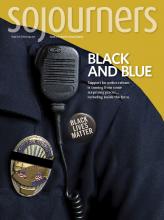I SPEAK ON about 25 college campuses a year, which affords me a front row seat for current trends in identity politics. One of the things I’ve noticed is that when people say they are engaged in “diversity work,” what they often mean is that they are busy mobilizing their preferred identity groups toward their approved politics. The main role they see for those on the other side is to be defeated.
But the real challenge of living in a diverse democracy is not dealing with the differences you like, it’s working with the differences you don’t like.
In his excellent new book, Confident Pluralism, John Inazu, a professor at Washington University Law School and board member of InterVarsity Christian Fellowship, takes a long look at how to do this, with special attention to religious differences.
Disagreements with regard to religious matters are some of the most challenging ones around. That’s because religion is about ultimate concerns. Not only do faith traditions deal with issues—creation, salvation, morality, human purpose—that are inherently ultimate in nature, they imbue matters that may otherwise be viewed as mundane with a sense of ultimacy. That’s not just a random group of people over there, that’s the church, or the umma. That’s not just any old piece of land, that’s the place where the Second Temple once stood, or where Lord Rama was born.
Inazu opens his book with a sobering quote from the French philosopher Jean-Jacques Rousseau: “It is impossible to live at peace with those we regard as damned.”
He is reminding us right off the bat that the stakes could not be higher.
Read the Full Article

